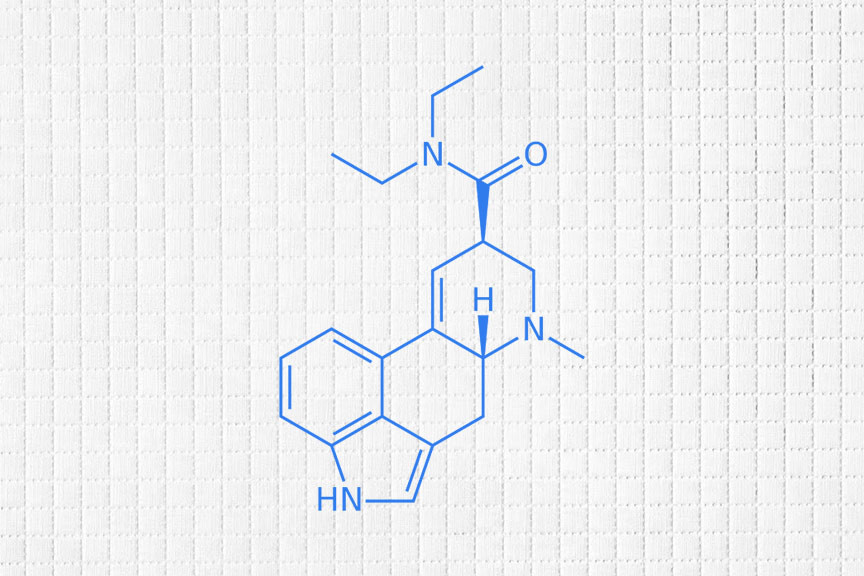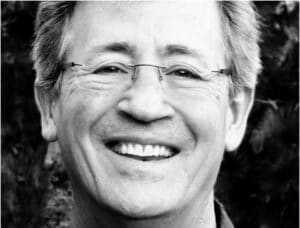Meet the professor who self-administered 73 high-dose LSD sessions
I chose to learn Grof’s methods for working therapeutically with LSD and use them in my private life to systematically explore my own mind and the mind of the universe as deeply as possible—73 high-dose sessions over 20 years.

Psymposia is a 501(c)(3) nonprofit research and media organization that offers critical perspectives on drugs, politics, and culture. We rely on contributions from our readers and listeners. Your support is vital to sustaining Psymposia.
Support Psymposia’s independent journalism on Patreon and help us drive the Mystery Machine! We’re a bunch of meddling kids who are unmasking the latest shenanigans on the psychedelics beat.
Christopher M. Bache, Ph.D. is professor emeritus in the Department of Philosophy and Religious Studies at Youngstown State University, where he taught for 38 years. He is also adjunct faculty at California Institute of Integral Studies in San Fransisco and a Fellow at the Institute of Noetic Sciences, where he was Director of Transformative Learning from 2000 to 2002. An award-winning teacher, Chris’ work explores the philosophical implications of non-ordinary states of consciousness, especially psychedelic states. He has written three books: Lifecycles, a study of reincarnation in light of contemporary consciousness research; Dark Night, Early Dawn, a pioneering work in psychedelic philosophy and collective consciousness; and The Living Classroom, an exploration of the transpersonal dynamics of teaching and collective fields of consciousness. He is currently working on a book describing his 20-year psychedelic journey—Diamonds from Heaven.

Zoë: Why did you conduct 73 high-dose LSD sessions on yourself over the span of 20 years?
Chris: I was trained as a philosopher of religion. As soon as I read [Stanislav] Grof’s Realms of the Unconscious in 1979—just as I was starting my academic career—I immediately saw the relevance of his research to the core questions I had been trained to pursue as a philosopher—questions about whether life has any meaning or purpose, whether human beings survive death, and whether there is a conscious intelligence operating in and behind the universe.
Given the legal status of LSD at the time, I made a difficult and painful decision. I chose to learn Grof’s methods for working therapeutically with LSD and use them in my private life to systematically explore my own mind and the mind of the universe as deeply as possible—73 high-dose sessions over 20 years. I did this work not as a clinician but as a philosopher.
In order to do this, a large portion of my life had to go underground. It is only after retiring from active university service in 2011 that I [felt] free to speak openly about this hidden side of my life, bringing the two sides of my life together.
What was your process during each session?
I followed the protocol for doing high-dose psychedelic therapy by the book, standardizing my practice as much as possible. I did this work in my home or a home-like setting, isolated from the world, cared for by a sitter (a clinical psychologist), lying down, wearing eyeshades and headphones, and using music carefully selected and managed to pace the stages of opening and closing of the session.
My sessions began in the morning and lasted all day. I began with a period of yoga and centering meditation (and later Vajrayana Buddhist practices). I wrote up every session within 24 hours, going to great lengths to make sure that the account was as complete and phenomenologically accurate as possible. I always worked alone, never in a group.
I worked at very high dose levels (500-600 mcg) which is a regimen that I honestly don’t recommend. This is an extremely demanding protocol and you pay a price for driving your system this hard. Given what I know now, I would recommend a gentler approach to the deep psyche.
Why 73 sessions?
That’s just the way the numbers came out; no special significance or design to it.
What kept you going over the years? What were your goals?
My goals changed and evolved as the journey deepened. At the center was my philosophical hunger to understand our universe, to experience it as deeply as possible. Intertwined with that was a desire to know myself, to know what I am underneath all the social and psychological layers at the very core of my being.
As both of these deepened and unfolded through the years, what drew me forward was the opportunity to experience the Creative Intelligence behind existence, to dissolve intact into the crystalline nature, the Divine. Closely associated with this was opportunity to enter deep into Oneness, to rest in the transparency of our Essential Nature.
In the last five years of my journey, what drew me most powerfully was the opportunity to return to what I call the Diamond Luminosity. Beyond spacetime, beyond the bardo echoes of spacetime—the Absolute Clear Light of Dharmakaya.
This is a hard question to answer. The most important? That the universe is the manifest body of a Divine Being of unimaginable intelligence, compassion, clarity, and power, that we are all aspects of this Being, never separated from it for a moment, that we are growing ever-more aware of this connection, that physical reality emerges out of Light and returns to Light continuously, that Light is our essential nature and our destiny, that all life moves as One, that reincarnation is true, that there is a deep logic and significance to the circumstances of our lives, that everything we do contributes to the evolution of the whole, that our awareness continues in an ocean of time and a sea of bliss when we die, that we are loved beyond measure and that humanity is driving towards an evolutionary breakthrough that will change us and life on this planet at the deepest level. Take your pick.
Did the LSD help you get deeper into your meditation practice?
Yes, my sessions have deepened my meditation practice and my meditation practice has helped ground my psychedelic practice. In my experience, these are complementary and mutually reinforcing undertakings that can be integrated well.
At the same time, in my particular psychedelic practice, a process of cosmological exploration opened that was different than the process of enlightenment. These are two different tracks with different goals and each should be judged on its own merits. One does not have to transcend time, be dissolved into archetypal reality or return to the birth of the universe in order to realize one’s Essential Nature or rest in the condition of emptiness and non-duality.
If you practice meditation enough, can you access the same state of consciousness you get when you are tripping?
First, I’ve never tripped. The therapeutic protocol is a very different undertaking that leads to much deeper and more challenging experiences than tripping. But can meditation access the same states of consciousness accessed through a therapeutically focused regimen? My honest answer is yes and no, with yes being the more important answer. Consciousness is consciousness; psychedelics are amplifiers of consciousness; it is consciousness that does the work. Therefore, what one can experience with psychedelics can be experienced using other methods such as meditation. The history of mysticism is filled with great beings, mahasiddhas, who show us that this is the case. But we’re talking about lifetimes of practice here, not simply a few decades.
The no side is this: There are some experiences I had in my psychedelic practice that are so extreme, that involve transcending the limits of spacetime so deeply, that they push the edges of what shows up even in the mystical literature. And since consciousness is consciousness, there is no reason for not allowing the possibility that psychedelics may amplify consciousness so strongly that they may take us places or teach us things that have not shown up on the contemplative’s radar.
What did your university in Ohio think of your research?
It’s been a complex dance. My university has not been aware of my personal psychedelic work. My friends in the department have but I have kept this to private conversations. Professionally, I have championed the philosophical significance of psychedelic research, have taught courses and published in this area, and all this has been recognized and accepted by my university. It even gave me its highest faculty award for publishing Dark Night, Early Dawn, which was a thinly veiled analysis of some of my own psychedelic experiences.
At a university that emphasizes teaching, you tend to be judged less on the content of your ideas and more [on] whether you are a good citizen of the academic community. If you serve your students well, have good teaching evaluations, publish in good journals, work on the usual university committees, and contribute to the wellbeing of your department, this buys you a lot of good will.
All that said, I think my university will be shocked when they learn from my new book what I was doing behind the scenes all these years—I hope they will be pleasantly surprised.
What will you be talking about at the International Transpersonal Conference in Prague?
It is a deep honor to come to Prague where Stanislav Grof did his formative psychedelic research and where my particular psychedelic lineage began. I will be presenting an overview of the book I am just completing—Diamonds from Heaven—describing where my psychedelic journey took me, some of the adventures it’s given me, and some of the lessons I learned.
Correction 9.6.17: A previous version of this article stated the book title as Stealing Diamonds from Heaven. The correct name is Diamonds from Heaven.
Hey! Before you go… Psymposia is a 501(c)(3) non-profit media organization that offers critical perspectives on drugs, politics, and culture. We strive to ask challenging questions, and we’re committed to independent reporting, critical analysis, and holding those who wield power accountable.
Our perspectives are informed by critical analysis of the systemic crises of capitalism that have directly contributed to the unmitigated growth of addiction, depression, suicide, and the unraveling of our social relations. The same economic elite and powerful corporate interests who have profited from causing these problems are now proposing “solutions”—solutions which both line their pockets and mask the necessity of structural change.
In order for us to keep unpacking these issues and informing our audience, we need your continuing support. You can sustain Psymposia by becoming a supporter for as little as $2 a month.
Zoë Biehl
Zoë is a full-time writer and editor, holds a BA in anthropology and sociology, and spends her free time petting all the street cats in Tel Aviv.





